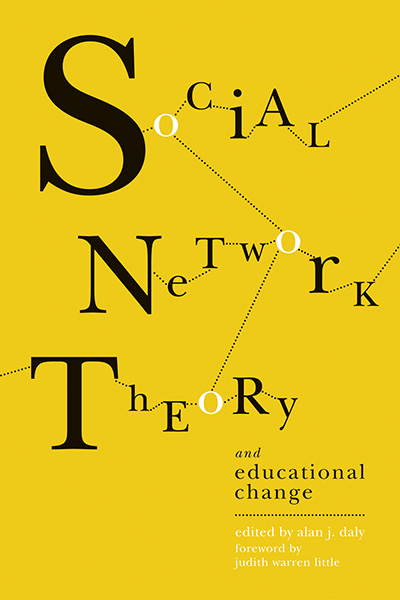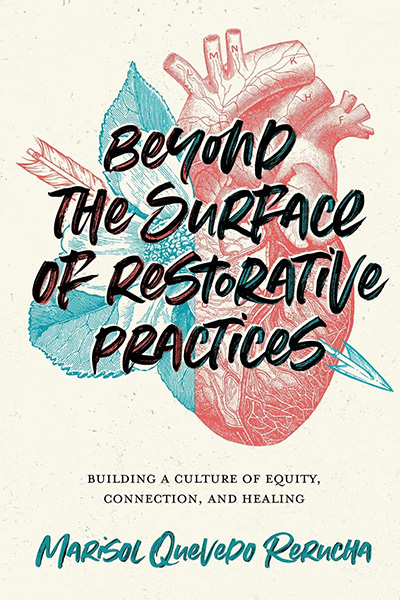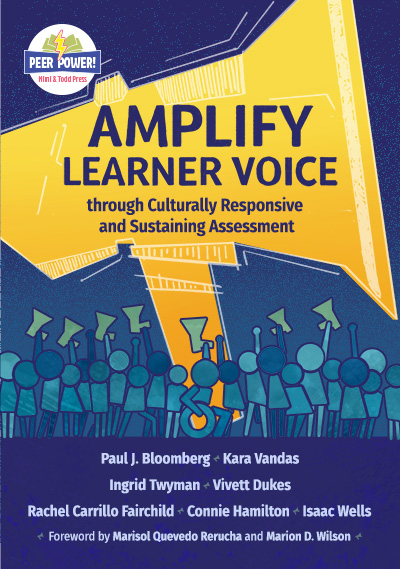How does your system cultivate a climate rooted in self, healing, clarity, and connection?
What are your goals for a cultivating a Learner-Centered Climate?
Monitor core climate areas connected to your district’s strategic plan.
View PD OptionsCreate and sustain restorative practices rooted in self, healing, and relational literacy.
View PD OptionsDevelop connections that ensure every learner can thrive
View PD OptionsQuality, Customized Professional Learning That Works
Our professional learning pathways all have the same goal, to advance learner ownership, efficacy, and agency. We partner with your system to assess your needs and co-construct an action plan anchored in implementation science. We are ready to help and support you at any stage of your learning journey.
Our Learning Progression
Foundational Learning
Build a shared language of learning anchored in co-constructed goals and success criteria aligned to your mission and vision.
Job-Embedded Coaching
Empower educators using the gradual release of responsibility to model, coach, monitor, and analyze progress towards shared goals.
Sustainable Systems
Advance teacher agency to ensure risk-taking, innovation, and collective efficacy through quality implementation.
Core Connections Organizational Network Mapping-Climate Inventory
How does your system measure and graph patterns of collaboration between individuals, PLCs, departments and schools? Organizational network mapping (ONM) provides detailed information about hidden factors for success like shared decision making, high impact collaboration, innovation, relational trust, purpose, and energy. Dr. Alan Daly, global researcher and UCSD Professor, designed the Core Connections climate instrument to measure patterns of quality collaboration and core climate areas connected to an organization’s strategic plan.
Core Connections Organizational Network Mapping
Organizational Network Mapping measures and graphs patterns of collaboration between individuals, PLCs, departments, and district schools.
- Make teamwork visible by graphing patterns of collaboration
- Learn about the true structure of your organization
- Examine the strength and quality of interactions between teams, departments, and schools
- Learn and visually see how your teams connect, communicate, and collaborate
Social Network Theory and Educational Change
Dr. Alan J. Daly
Core Connections Climate Inventory
Core Connections Climate Inventory is a research-based instrument used by schools and systems to monitor core climate areas connected to a district’s strategic learning plan. Systems can customize their inventory using the following methods:
- Sense of Belonging and Relational Trust
- Personalized Learning and Innovation
- Collective Efficacy and Levels of Collaboration
- Beliefs Around Standards
- Instructional Leadership
Social Network Theory and Educational Change
Dr. Alan J. Daly
Restorative Heartset & Mindset: Cultivate a Restorative Culture
Our restorative framework is the only systemic approach to creating and sustaining a culture that is rooted in self, healing, and relational literacy. Our comprehensive framework creates an integrated approach between cultural competency, trauma-informed care, and restorative-resiliency practices.
Building the Foundation for Connection
Build a restorative culture that supports meaningful connections with students, staff and families.
- Leverage collective decision making for shared responsibility
- Re-examine mission and vision
- Co-construct community agreements and core beliefs
Beyond the Surface of Restorative Practices: Building a Culture of Equity, Connection, and Healing
Marisol Quevedo Rerucha
The Mindset and Heartset of Restorative Practices
The most effective educators have a restorative heart and mindset. They embrace their own humanity, and that of others, through reflection, growth, vulnerability, and healing.
- Promote deep reflection to build community
- Practice centering techniques for reacting to other’s actions
- Participate in check-in/check-out, circles, and mediation
- Practice having difficult conversations and receive feedback
- Create a strategic plan for systemic quality implementation
Beyond the Surface of Restorative Practices: Building a Culture of Equity, Connection, and Healing
Marisol Quevedo Rerucha
Creating a Trauma Informed and Resilient Culture
A resilient culture has the capacity to bounce back after adversity. It is the flexibility of the culture to adapt, to flex with a situation, and respond in a variety of ways that make the culture stronger.
- Develop an understanding of early trauma
- Identify signs and symptoms of trauma
- Practice trauma informed strategies
- Align current practices to support resiliency
- Build a resilience-focused culture
Beyond the Surface of Restorative Practices: Building a Culture of Equity, Connection, and Healing
Marisol Quevedo Rerucha
Culturally Responsive Education
How do schools and systems develop the connections that ensure each learner can thrive in the classroom? Professional learning for culturally responsive education involves unpacking biases, exploring cultural identity, and fostering inclusive classroom environments. When educators acknowledge and challenge personal and systemic biases, they can co-create school and classroom cultures that recognize diverse cultural backgrounds as assets and establish meaningful and lasting connections with students, families, and the community.
Grounded in Cultural Responsiveness
Effective educators understand how cultural identity, beliefs, and implicit biases inform the way they interact with and respond to others.
- Unpacking biases and exploring cultural identity
- Validating home culture by connecting with student-families
- Growing and strengthening a culturally responsive classroom
- Classroom management through a culturally responsive lens
Amplify Learner Voice Through Culturally Responsive and Sustaining Assessment
Paul J. Bloomberg, Ed.D., Kara Vandas, Ingrid Twyman, Vivett Dukes, Rachel Carrillo Fairchild, Connie Hamilton and Isaac Wells
Resources
Let's Connect
Complete the form below and we’ll be in touch to create a solution that addresses your needs and achieves your goals in learning spaces.
Prefer to talk on the phone? No problem! You can give us a call at: 619-432-2673
This form is on the "Let's Connect" Section on the Homepage
"*" indicates required fields










